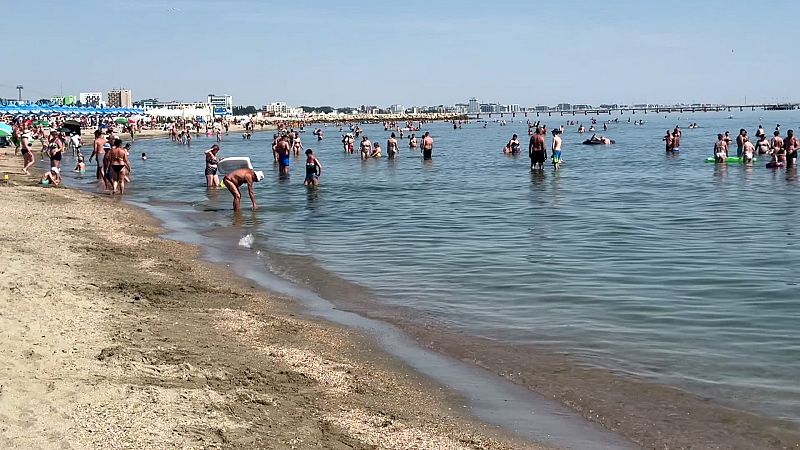
Economic Challenges Impacting Romanian Tourism
Recent data from Eurostat reveals that only 26.6% of Romanians could afford a one-week holiday in their own country or abroad last year. This figure is significantly lower than the average seen across much of Europe, where countries like Sweden, Luxembourg, and the Netherlands reported that over 85% of their citizens could take such a trip. In comparison, Bulgaria was the closest to Romania’s numbers, highlighting a stark disparity in economic conditions among European nations.
The decline in tourism has had a visible impact on key destinations like the Black Sea resort of Mamaia. Once a bustling hub of activity, the area now appears subdued, with many sunbeds left empty and fewer visitors enjoying its beaches. The transformation has raised concerns about the future of local businesses and the broader economy.
Factors Behind the Decline
Several factors have contributed to the drop in tourist numbers. The ongoing conflict in Ukraine, combined with economic instability, has played a significant role. However, one of the most impactful changes came from Bucharest's decision to cut the value of the popular holiday voucher scheme by 50%. These vouchers were designed to support local tourism by allowing users to spend on hotel stays, food, and entertainment within participating venues across Romania.
Travel agents report a dramatic decrease in voucher sales. In May 2024, around €95 million worth of vouchers were sold, but this year, the total dropped to just €9 million. Hoteliers in the region describe the situation as dire, with bookings limited to short stays of two or three days due to the reduced number of tourists.
Rising Costs and Changing Travel Habits
Hoteliers in Mamaia have also noted that prices have increased significantly, further deterring potential visitors. Felicia Simion, a hotelier in the area, explained that while a room with breakfast costs between 350-400 Leu (€69-79) in July, an all-inclusive package can range from 700-850 Leu (€138-168) per night. Sebastian Puznava, another hotel owner, echoed these sentiments, noting that the cost of basic items like water bottles and beer has risen sharply.
Tourists themselves have observed the price hikes. Cătălin Ciobanu described the increase as “very expensive compared to previous years,” while Virgil Nohai said he would not spend more than 800-1,000 Leu (€158-197) for a stay. These rising costs have forced many to reconsider their travel plans.
Shift in Booking Patterns
Last month, most bookings in seaside resorts were made for weekends rather than full weeks, a shift from previous years when longer stays were common. Many tourists are now opting for last-minute offers to maximize savings and get the best value for their money. This trend reflects a growing reluctance among travelers to commit to extended stays in the face of uncertainty and high costs.
The combination of reduced holiday vouchers, rising prices, and shifting consumer behavior has created a challenging environment for the tourism sector in Romania. As the industry adapts to these new realities, it remains to be seen how effectively it can recover and regain its former vibrancy.
